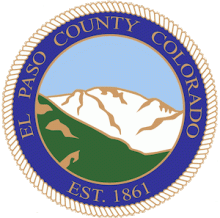El Paso County, CO, Commissioner Urges "Yes" On Local Authority
This has been a “loud” general election. The candidates, the campaign ads, and the supporters have all blasted their messages to voters in every state, drowning out some initiatives that are equally important. In Colorado, 26 local governments are asking voters to decide whether or not to opt out of SB 152, the state’s restrictive law passed in 2005 that looted local telecommunications authority.
In addition to seven counties, 19 municipalities have the issue on the ballot. Most of them use similar language from years past, when dozens of Colorado local governments presented the same question to voters.
El Paso County
There are about 664,000 people in the county, with approximately 456,000 living in the county seat of Colorado Springs. Rural residents and businesses typically struggle to obtain Internet access. County Question 1A reads:
Without increasing taxes, shall El Paso County have the authority to provide, or to facilitate or partner or coordinate with service providers for the provision of, “advanced (high-speed internet) service,” “cable television service,” and “telecommunications service,” either directly, indirectly, or by contract, to residential, commercial, nonprofit, government or other subscribers, and to acquire, operate and maintain any facility for the purpose of providing such services, restoring local authority and flexibility that was taken away by Title 29, Article 27, Part 1 of the Colorado Revised Statutes?
Recently, El Paso County Board of Commissioners chairwoman Sallie Clarke published a guest column in the Colorado Springs Business Journal and the Gazette urging voters to support the measure. She noted that, even thought the initiative is important to the community, the local press has been quiet about the measure. With media filled by the Clinton/Trump race, there is little room for anything else, but she spells out why El Paso County needs to opt out of SB 152.
Staying Competitive



